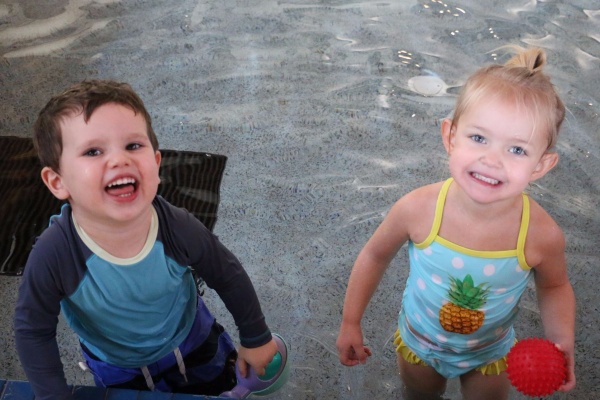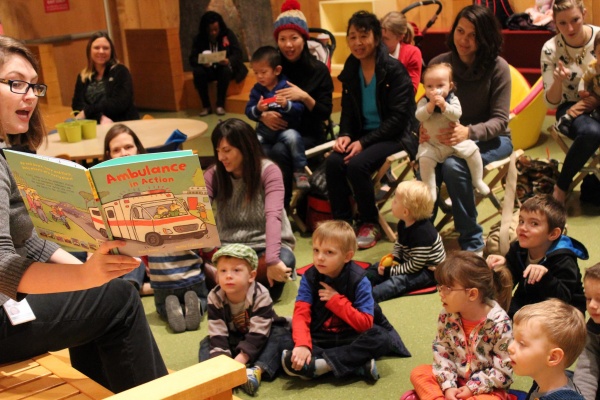
Higher Expectations for Childhood Concentration
 On the one hand, I love the fact that my 5-year-old is light years ahead of where I was in kindergarten. We were learning to recognize colors; he is learning to recognize the circulatory, digestive and respiratory systems. We were learning shapes; he is learning the food pyramid.
On the one hand, I love the fact that my 5-year-old is light years ahead of where I was in kindergarten. We were learning to recognize colors; he is learning to recognize the circulatory, digestive and respiratory systems. We were learning shapes; he is learning the food pyramid.
But as Dr. Garret Burris pointed out when I interviewed him for an article about children’s brain development in the current issue of St. Louis Kids Magazine, “the academic demands are a lot different than they were two or three generations ago.”
Burris, a pediatric neurologist at St. Luke’s Hospital and associate professor of pediatrics and neurology at Washington University, was explaining why parents hear more about problems related to concentration – and why ADHD is a much more common diagnosis today than “hyperactivity,” to use the old label, was 20 years ago.
“It’s probably true that there’s no difference in anyone growing up today as they were growing up 50 or 60 years ago,” Burris said. “They’re the same people. I don’t think there’s any increase in the frequency of this. It’s more a matter of how we see, diagnose and deal with the people who have these problems.”
For example, he said, for someone growing up with ADHD in an agricultural or manufacturing town, the demands of school weren’t the same. It was OK to drop out at 16 and go to a farm or factory, “and that’s what a lot of people did.”
He continued, “If that same person was growing up today, there’s no way they would make it through the school day.” In addition, he said, “doing a pile of non-essential homework in second or third grade may hamper these kids.”
In upper grades, a bright child with trouble concentrating could have been expected to pull Cs a generation ago, Burris said. “Now that person with an IQ of 150 who struggles in school is [perceived as] underachieving.”
That’s not to say that they will not ultimately be successful in life – in fact, the higher they rise, the more likely they are to have the support they need to thrive, like an executive assistant to help cope with details.
Burris said that parents often recognize their own early struggles in their children’s experiences. “I can’t tell you how many times I see a child who’s struggling [with] this problem, and as we’re sitting there talking, one of the parents will say, ‘I had the same problem, and I was able to work hard and overcome it.’”
But, he added, “If that parent had to go to this particular school [their child is in now], they know there’s no way they could do it.”
Many of the suggestions in the article – taking breaks, eating a good breakfast, getting exercise, finding a child’s natural daily rhythm when it comes to homework – will benefit students who struggle to concentrate.
One other big thing parents can do is to revise their expectations. As someone who’s inordinately proud of what her kindergartener can do, I can see how this is easier said than done. But if push comes to shove, I’m definitely willing to let the homework slide.
By Amy De La Hunt, Health Blogger for SmartParenting

Amy De La Hunt is a journalist and editor who lives in the St. Louis metro area and works across the country as a writer, copy editor, project manager and editorial consultant on everything from fiction books to monthly magazines to blog posts. When she's not chauffeuring her teenage sons to activities, Amy is an enthusiastic amateur cook, landscaper, Latin dancer and traveler. Follow Amy on Instagram @amy_in_words





















